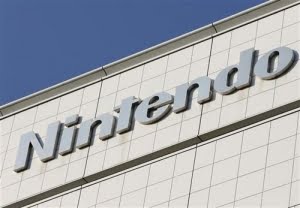Video Games Europe welcomes important legal victory for Nintendo in Italy
 Video Games Europe is very pleased to report that its member company, Nintendo, has won an important civil case before the First Instance Tribunal of Milan against an importer and seller of devices that circumvent the security measures (so- called technological protection measures or TPMs) that are used to protect Nintendo’s games and the games of other publishers from piracy.
Video Games Europe is very pleased to report that its member company, Nintendo, has won an important civil case before the First Instance Tribunal of Milan against an importer and seller of devices that circumvent the security measures (so- called technological protection measures or TPMs) that are used to protect Nintendo’s games and the games of other publishers from piracy.
The case was begun in September 2008 against PC Box s.r.l., which sold such circumvention devices from a retail premises in Florence and via an e- commerce website, hosted at the time by the second defendant in the case. In 2013, the Milan Tribunal referred two questions to the Court of Justice of the European Union regarding the scope of the protection for TPMs in the EU Copyright Directive. The Court of Justice delivered its ruling in January 2014 and referred the case back to the Milan Tribunal.
The final decision of the Milan Tribunal of 6 November 2015 is the first to interpret the ruling of the Court of Justice, which provided national courts across the EU with a framework to assess whether such TPMs were proportionate and therefore protected in law. The Court of Justice had confirmed that Nintendo and other game console makers could use TPMs to protect their games and the games of other publishers from piracy. What they could not do was use TPMs to prevent activities that had another commercially significant purpose or use. In other words, they had to respect the principle of proportionality. The Milan Tribunal has now ruled that the primary use of circumvention devices, such as game copiers and mod chips, is to circumvent security measures to enable the playing of pirate games. It has also ruled that Nintendo’s security measures were fully proportionate and therefore protected under Italian copyright law.
The Milan Tribunal found that PC Box had failed to adduce any evidence of alternative protection systems or of the effective distribution of so-called ‘homebrew' games or apps. The Tribunal found the use of homebrew on Nintendo platforms to be absolutely marginal. Video Games Europe’s previously expressed confidence that the application of the proportionality test set out by the Court of Justice in 2014 would enable national courts to determine the sale of circumvention devices to be unlawful was clearly not misplaced. The decision of the Milan Tribunal will now help other national courts across the EU to properly apply the Court of Justice’s guidance on TPMs in other cases against circumvention device sellers.
Video Games Europe is pleased that the Milan Tribunal decision is consistent with a long line of positive judicial precedents established by national courts in a number of EU Member States including Belgium, France, Germany, the Netherlands, Spain and the UK. The decision is also entirely in line with several decisions from the Italian Supreme Court (Criminal Division) against sellers of circumvention devices, as well as a recent ruling from the criminal appeal courts in Florence, which confirmed a first instance criminal decision, against the owners of PC Box.
The final outcome of this case was very important for the games industry because it uses a wide variety of TPMs to not only protect its products from piracy, but also to ensure the development of new means of delivery, so creating more product development, growth and jobs. TPMs are used for a range of purposes that are distinctly beneficial to consumers, including the protection of minors. TPMs also underpin the wide variety of cross-border digital business models that are the foundation of the games industry, which is a prime exponent and driver of the EU’s digital single market.
Piracy constitutes a major threat to the games industry and costs it hundreds of millions of euros in lost sales every year. Piracy causes widespread economic damage to European game developers, publishers, distributors and retailers, hurts national tax revenues and undermines the prospects for economic growth, employment and technological innovation.
The games industry incurs particular damage from the widespread availability of circumvention devices, because unauthorised copies of games downloaded from the Internet can only be played on consoles that have been modified by such devices. Such devices further fuel levels of online piracy because each one functions as a gateway to multiple future infringements and inflicts untold damage on legitimate game sales.
The games industry, therefore, regards the enforcement of effective provisions against the manufacture, distribution and use of circumvention devices as an essential factor in preventing or limiting the download and sale of pirate games. Ensuring that countries have effective legislation and enforcement regimes that make such circumvention, as well as the manufacture and distribution of circumvention devices, illegal and subject to both criminal and civil remedies, is a high priority for the industry. Without the ability to deploy TPMs, console piracy would thrive and competition and innovation in the market would be undermined or destroyed.

